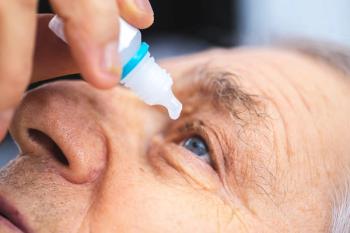
The American Board of Optometry is no longer the only game in town
Optometry stands to benefit now that President Obama has signed the $940 billion health-care reform bill, which prevents discrimination against ODs by health plans and includes other provisions for expanding patients' access to optometric care.
Optometry stands to benefit now that President Obama has signed the $940 billion health-care reform bill, which prevents discrimination against ODs by health plans and includes other provisions for expanding patients' access to optometric care.
Opponents of board certification have argued that it is unnecessary, will provide no real benefits, and will be too costly for practitioners. Ironically, some of these same critics have created their own certifying body: the American Board of Clinical Optometry (ABCO). On March 5, the ABCO announced it was accepting applications for board certification in general optometric practice. ABCO also plans to co-develop subspecialty certification with appropriate organizations in the near future.
ABCO's announcement from ABCO came less than one month after the ABO announced that it adopted requirements for initial board certification, that online applications would likely be available this month, and that it hopes to have a computer-based test for initial board certification early next year.
In 2007, the AOA and representatives of five other optometric organizations formed the Joint Board Certification Project Team (JBCPT) to develop a board-certification model for optometry and maintenance of certification for adoption by the profession.
At Optometry's Meeting this past June, the AOA's House of Delegates narrowly passed an endorsement of general board certification and maintenance of certification for optometrists, and to move forward in creating the American Board of Optometry (ABO). However, the issue remains a divisive one.
Certification requirements
• ABO. The requirements for initial board certification by the ABO follow the recommendations of the profession, allowing a three-year phase-in period, similar to the processes of medical specialties in their formative years.
After an initial online application, the ABO will confer active candidate status for one year. To become eligible for the examination, active candidates must attain 150 points within the three years prior to applying to take the exam. They can do so by: a residency accredited by the Accreditation Council on Optometric Education (ACOE), worth 150 points; fellowship in the American Academy of Optometry or College of Optometrist in Vision Development, 50 points each; experience in clinical practice, five points per year up to 150 points; and continuing education or other educational and scholarly activities, up to 150 points.
Once an active candidate completes 150 points, they must submit evidence of three years of active licensure and clinical practice or completion of an ACOE-approved residency. The candidate also must submit the online examination application and schedule the board certification examination within 12 months.
Upon successful completion of the board certification exam, the ABO will confer board-certified status to the optometrist for 10 years. Board certification must be kept current through enrollment in the ABO's maintenance of certification process.
• ABCO. Requirements for ABCO certification include completion of an accredited course of study for an OD degree, passing required examinations from the National Board of Examiners in Optometry (NBEO) or their equivalent, and licensure by at least one state, provincial or territorial licensing body.
"Initial certification under the ABCO is based upon the premise that you have demonstrated the knowledge and skills necessary to practice the profession competently via your degree, passing national or state board exams, and obtaining a license," said Craig Steinberg, OD, JD, general counsel for the ABCO. "These provide sufficient assurance of entry-level competence to grant initial certification."
Not so, according to Jeffrey Weaver, OD, ABO executive director. "State boards test only entry level competency at the time of licensure and never evaluate the OD again after that date," Dr. Weaver said.
Third organization
Meanwhile, a third independent organization, the American Board of Certification in Medical Optometry (ABCMO), also announced in March that it would accept applications for board certification from U.S.-licensed optometrists who have chosen to specialize in medical optometry.
To obtain certification from ABCMO, an OD must complete an ACOE-accredited residency in medical of optometry and pass the NBEO examination. Two other forms of certification from ABCMO are based on continued competence in general practice optometry.
So, which one should an optometrist interested in board certification choose?
"The OD should evaluate the credibility of the program based on already set national standards for credibility," Dr. Weaver said.
Newsletter
Want more insights like this? Subscribe to Optometry Times and get clinical pearls and practice tips delivered straight to your inbox.









































